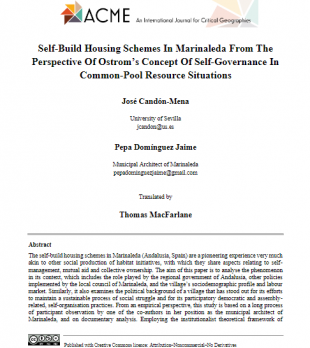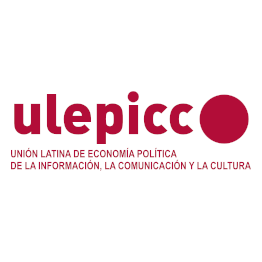
Candón Mena, Jose & Domínguez Jaime, Pepa (2020).
ACME: An International Journal for Critical Geographies, 19(3), 684-706.
The self-build housing schemes in Marinaleda (Andalusia, Spain) are a pioneering experience very much akin to other social production of habitat initiatives, with which they share aspects relating to self-management, mutual aid and collective ownership. The aim of this paper is to analyse the phenomenon in its context, which includes the role played by the regional government of Andalusia, other policies implemented by the local council of Marinaleda, and the village’s sociodemographic profile and labour market. Similarly, it also examines the political background of a village that has stood out for its efforts to maintain a sustainable process of social struggle and for its participatory democratic and assembly-related, self-organisation practices. From an empirical perspective, this study is based on a long process of participant observation by one of the co-authors in her position as the municipal architect of Marinaleda, and on documentary analysis. Employing the institutionalist theoretical framework of Ostrom’s concept of self-governance in common-pool resource situations, her design principles for common-pool resource institutions were applied to the case of Marinaleda. In light of the study findings, it can be claimed that these principles prevail in a very similar way and help to understand the success of the self-build housing schemes in Marinaleda. Accordingly, it would be interesting to extend the application of the theory to different types of assets, beyond natural resources.












